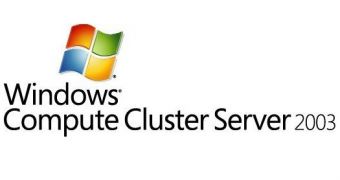Traditionally, because of consumer perception, the business models proprietary vs. open source software, Microsoft's own position in relation to the open source community and companies, Windows and Linux are interpreted as situated at opposite poles of the operating system spectrum. Yet there are multiple facets to both platforms, spreading from the server to the desktop and to supercomputers. And while the Redmond company has teamed up with Linux distributor Novell, in order to build an interoperability bridge between Windows and Linux on the server side, Microsoft is also making efforts to place its operating system as an alternative to the open source platform on the high performance computing market.
At the beginning of November 2007, Microsoft made available Windows HPC Server 2008, the successor of Windows Compute Cluster Server 2003. The latest Microsoft operating system for the high performance computing market plays well with Linux, as Microsoft revealed. The Redmond company published a whitepaper designed to permit the building of a dual-boot Linux / Windows HPC Server 2008 System. But Windows HPC Server 2008 is not enough for Microsoft. A new resource dropped in January 2008 offers a way to integrate Windows Compute Cluster Server into a Linux Environment through Platform LSF.
"The integration of WCCS into the Linux SUSE environment enables users to submit jobs to the Platform LSF scheduler for execution on WCCS. When a job is submitted to the Platform LSF scheduler's WCCS queue on Linux, it is transferred to the Platform LSF installation on Windows Compute Cluster Server. The Platform LSF installation running on WCCS then authenticates the user and runs the job using that user's credentials," Microsoft stated.
In this manner, the Redmond company is attempting to gather more focus from the HPC crowd to its own Windows for supercomputers. The integration of Windows Compute Cluster Server 2003 into a Linux environment has been tested with Platform LSF version 6.2 HPC and the SUSE Linux Enterprise Server 10 operating system from Novell.
"Because high-performance computing (HPC) clusters represent a significant investment of resources, maximizing the benefits of your existing investment can result in huge savings. The interoperability of WCCS with third-party job schedulers like Platform LSF can ensure seamless integration into heterogeneous clusters. If you have an existing Linux cluster and are familiar with Platform LSF, you can continue to use it while adding the power and ease of WCCS to your environment. WCCS enables you to accomplish more, in less time and with reduced effort, by taking advantage of your users' existing skills and integrating with tools they are already using," Microsoft added.

 14 DAY TRIAL //
14 DAY TRIAL //